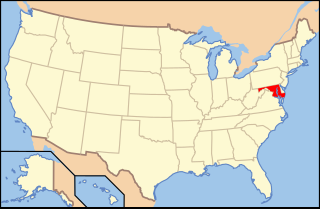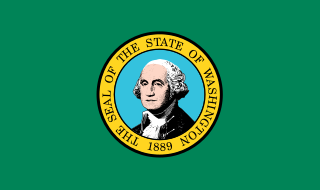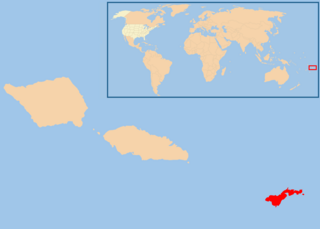Related Research Articles
Gun laws and policies, collectively referred to as firearms regulation or gun control, regulate the manufacture, sale, transfer, possession, modification, and use of small arms by civilians. Laws of some countries may afford civilians a right to keep and bear arms, and have more liberal gun laws than neighboring jurisdictions. Countries that regulate access to firearms will typically restrict access to certain categories of firearms and then restrict the categories of persons who may be granted a license for access to such firearms. There may be separate licenses for hunting, sport shooting, self-defense, collecting, and concealed carry, with different sets of requirements, permissions, and responsibilities.

The National Firearms Act (NFA), 73rd Congress, Sess. 2, ch. 757, 48 Stat. 1236 was enacted on June 26, 1934, and currently codified and amended as I.R.C. ch. 53. The law is an Act of Congress in the United States that, in general, imposes an excise tax on the manufacture and transfer of certain firearms and mandates the registration of those firearms. The NFA is also referred to as Title II of the federal firearms laws, with the Gun Control Act of 1968 ("GCA") as Title I.
In the United Kingdom, access by the general public to firearms is subject to some of the strictest control measures in the world. However, fulfilment of the criteria and requirements as laid out by the laws results in the vast majority of firearm licence applications being approved. Laws differ slightly in Northern Ireland due to Northern Ireland having its own firearms legislation. Concerns have been raised over the availability of illegal firearms.
Firearms regulation in Finland incorporates the political and regulatory aspects of firearms usage in the country. Both hunting and shooting sports are common hobbies. There are approximately 300,000 people with hunting permits, and 34,000 people belong to sport shooting clubs. Over 1,500 people are licensed weapons collectors. Additionally, many reservists practice their skills using their own semi-automatic rifles and pistols after the military service.
The gun laws of New Zealand are contained in the Arms Act 1983 statute, which includes multiple amendments including those that were passed subsequent to the 1990 Aramoana massacre and the 2019 Christchurch mosque shootings.
Military-style semi-automatic firearms in New Zealand are those semi-automatic firearms known in the United States as "assault weapons". The phrase is often abbreviated as military-style semi-automatic (MSSA). A New Zealand firearms licence-holder requires an E Category endorsement on their licence before they can possess this type of firearm, and a police-issued permit to procure each firearm is required. Arriving at a clear definition and common understanding of which semi-automatic firearms have a military-style configuration has dominated debate about gun-control legislation in New Zealand since 1992.
Gun laws in Norway incorporates the political and regulatory aspects of firearms usage in the country. Citizens are allowed to keep firearms. The acquisition and storage of guns is regulated by the state.
In Germany, access to guns is controlled by the German Weapons Act which adheres to the European Firearms Directive, first enacted in 1972, and superseded by the law of 2003, in force as of 2016. This federal statute regulates the handling of firearms and ammunition as well as acquisition, storage, commerce and maintenance of firearms.
This is a list of laws concerning air guns by country.
Gun control in Italy incorporates the political and regulatory aspects of firearms usage in the country within the framework of the European Union's Firearm Directive. Different types of gun licenses can be obtained from the national police authorities. According to a 2007 study by The Small Arms Survey Project, the per capita gun ownership rate in Italy is around 12% with an estimated 7 million registered firearms in circulation.

Gun laws in New York regulate the sale, possession, and use of firearms and ammunition in the U.S. state of New York, outside of New York City which has separate licensing regulations. These regulations are very strict in comparison to the rest of the United States.

Gun laws in Maryland regulate the sale, possession, and use of firearms and ammunition in the U.S. state of Maryland.

Gun laws in Massachusetts regulate the sale, possession, and use of firearms and ammunition in the Commonwealth of Massachusetts in the United States.

The state of Washington in the United States has laws regulating the sale, possession, and use of firearms and ammunition.
To buy a firearm in France, in line with the European Firearms Directive, a hunting license or a shooting sport license is necessary depending on the type, function and magazine capacity of the weapon.

Gun laws in American Samoa regulate the sale, possession, and use of firearms and ammunition in the unincorporated territory of American Samoa. As American Samoa is an unincorporated territory of the United States, many U.S. federal laws apply, as well as Constitutional rulings and protections.
Maltese law allows possession of various types of firearms on shall-issue basis. With approximately 28 civilian firearms per 100 people, Malta is the 18th most armed country in the world.
Lithuanian law allows firearm possession on a shall-issue basis. With approximately 13.6 civilian firearms per 100 people, Lithuania is 58th most armed country in the world.
Uruguayan law allows firearm possession on shall-issue basis. With approximately 35 civilian firearms per 100 people, Uruguay is the eighth most armed country in the world and most armed in Latin America.
Austrian law allows firearm possession on shall-issue basis with certain classes of shotguns and rifles available without permit. With approximately 30 civilian firearms per 100 people, Austria is the 14th most armed country in the world.
References
External links
- "Закон за оружјето" [Law on Weapons](PDF) (in Macedonian). July 27, 2022. Retrieved September 19, 2022.
Footnotes
- ↑ "Macedonia:Number of Registered Firearms". GunPolicy.org.
- 1 2 "A Fragile Peace: Guns and Security in Post-conflict Macedonia" (PDF). June 2004.
- ↑ "Закон за изменување и дополнување на законот за Оружјето" [Amendments to "Law on Weapons"](PDF) (in Macedonian). April 4, 2007. p. 7.
- 1 2 "Закон за оружјето" (PDF). Ministry of Internal Affairs of North Macedonia. July 27, 2022. Retrieved September 19, 2022.
- ↑ "Only a quarter of 621,000 firearms in civilian possession are registered". August 12, 2019. Archived from the original on September 16, 2019.